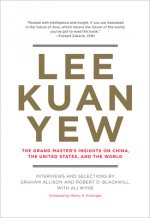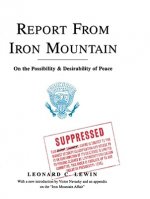
Code: 18365044
The Europeanisation of National Foreign Policy through EU membership: The Case of Spain
by Ron Böhler
Seminar paper from the year 2011 in the subject Politics - International Politics - Topic: European Union, grade: 1.0, University of Bath, language: English, abstract: 'For the last thirty years, Spanish foreign policy has had a s ... more
- Language:
 English
English - Binding: Paperback
- Number of pages: 24
Publisher: Grin Publishing, 2017
- More about this

34.63 €
RRP: 37.20 €
You save 2.57 €

In stock at our supplier
Shipping in 15 - 20 days
You might also like
-

Influence of the 9/11 novel on Muslim Writing
37.86 € -1 %
Give this book as a present today
- Order book and choose Gift Order.
- We will send you book gift voucher at once. You can give it out to anyone.
- Book will be send to donee, nothing more to care about.
More about The Europeanisation of National Foreign Policy through EU membership: The Case of Spain
You get 87 loyalty points
 Book synopsis
Book synopsis
Seminar paper from the year 2011 in the subject Politics - International Politics - Topic: European Union, grade: 1.0, University of Bath, language: English, abstract: 'For the last thirty years, Spanish foreign policy has had a single (though double-barrelled) objective: first, integration in Europe; secondly, integration of Europe.' (Torreblanca 2010, p.10). Not quite a decade after twelve European countries agreed on a Common Foreign and Security Policy (CFSP), national foreign policies among the EU have 'significantly been changed, if not transformed, by participation over time in foreign policy making at the European level' (White 2001, p.6). This, indeed, says little about the nature and direction of the changes that occurred and whether these conduced to general foreign policy convergence among EU member states or perhaps even fostered greater divergence. In recent years, Europeanisation processes of national foreign policies have attracted more and more scholarly attention. While some case studies focus on the European impact on Central and Northern European states, for instance the Netherlands, Denmark and Ireland (Tonra 2001), others evaluate the distinctive features of the 'Big Three' - France, the United Kingdom and Germany - in EU foreign policy-making (Wong 2006; Gross 2009; Aggestam 2011 Forthcoming). In contrast, EU states in the Southern periphery have substantially been described as adaptive laggards that 'displayed remarkably resilient and distinctive features of state tradition and political culture despite the pressures of the EU' (Featherstone and Kazamias 2001, p.2). One of these countries, Spain, joined the European Union at a time when joint efforts to encourage a common foreign and security policy framework were still in the early stages of development. It will be argued below that Spain, at first assumed to be an enfant terrible within the European foreign policy framework, turned out to be an enfant sage with greater ambitions. From the viewpoint of social constructivism, the changing behaviour as well as the active role that Spain took very early in European foreign policy will be portrayed.
 Book details
Book details
Book category Books in English Society & social sciences Politics & government
34.63 €
- Full title: The Europeanisation of National Foreign Policy through EU membership: The Case of Spain
- Author: Ron Böhler
- Language:
 English
English - Binding: Paperback
- Number of pages: 24
- EAN: 9783668538023
- ISBN: 3668538026
- ID: 18365044
- Publisher: Grin Publishing
- Weight: 49 g
- Dimensions: 210 × 148 × 1 mm
- Published: 2017
Trending among others
-

My Autobiography
11.60 € -27 % -

Wealth Hoarders: How Billionaires Pay Millions Millions to Hide Trillions
16.25 € -28 % -

Flash Boys - A Wall Street Revolt
12.82 € -

Wretched of the Earth
10.59 € -20 % -

Case Against the Sexual Revolution
14.94 € -29 % -

State and Revolution
4.94 € -18 % -

Powershift
8.17 € -21 % -

Master of the Senate
23.52 € -9 % -

Maestro
16.96 € -15 % -

Children of the Matrix
17.26 € -18 % -

Yoga of Eating
11.40 € -24 % -

The Lords of Poverty: The Power, Prestige, and Corruption of the International Aid Business
12.51 € -26 % -

GREEN BOOK
7.26 € -28 % -

Empire of Lies
13.83 € -19 % -

Lee Kuan Yew
18.27 € -20 % -

Devil's Knot
14.63 € -27 % -

Return of Marco Polo's World
15.24 € -16 % -

STRANGE DEATH OF EUROPE
16.96 € -19 % -

War on Peace
15.85 € -19 % -

American Lion
30.19 € -22 % -

Che, My Brother
12.82 € -21 % -

Politically Incorrect Guide to Science
16.76 € -20 % -

Rise, the Fall and the Recovery of the USA
20.59 € -2 % -

Politically Incorrect Guide to Islam (And the Crusades)
18.27 € -21 % -

Marx Worldwide
42.11 € -

Weapons of the Weak
28.17 € -

The Trigger
22.92 € -25 % -

Accidental Superpower
19.89 € -9 % -

Politics
47.05 € -13 % -

Xi Jinping: The Governance of China
31.10 € -

Cold and the Dark
19.28 € -15 % -

Fight Like A Girl
10.29 € -28 % -

Sandworm
26.45 € -20 % -

Age of Ambition
11.30 € -28 % -

Force of Reason
17.56 € -16 % -

Against Civilization
13.83 € -19 % -

Report From Iron Mountain
13.12 € -13 % -

Reflections of a Nonpolitical Man
19.38 € -19 % -

Rage and the Pride
15.04 € -4 % -

Joint Terminal Attack Controller (JTAC) Training Program
19.38 € -

Nuclear Weapons and Foreign Policy
22.51 € -1 % -

Reveille for Radicals
13.83 € -19 % -

J Curve
15.54 € -29 % -

Voices from the Contemporary Japanese Feminist Movement
48.67 € -13 % -

Calculus of Consent
14.53 € -6 % -

Lineages of Modernity - A History of Humanity from the Stone Age to Homo Americanus
38.77 € -7 % -

Red Petrograd
21.50 € -4 % -

Betrayal
10.59 € -18 % -

RFK
14.03 € -18 %
Collection points Bratislava a 2642 dalších
Copyright ©2008-24 najlacnejsie-knihy.sk All rights reservedPrivacyCookies


 15549 collection points
15549 collection points Delivery 2.99 €
Delivery 2.99 € 02/210 210 99 (8-15.30h)
02/210 210 99 (8-15.30h)